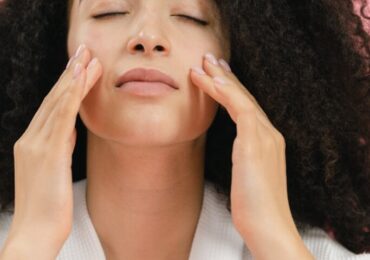With the rise in temperature, as the summer months approach and humidity in the air increases, oily skin issues exacerbate everyone’s problems even more. Humid weather especially destroys the oily-skinned individuals. The moisture of the skin in the air triggers the discharge of sebum inside the skin, resulting in oiliness of the skin, clogged pores, acne, and an overall sensation of stickiness. Every skin requires proper care and support, and dermatologists have a few secrets of their own for fighting these woes and attaining clean. To help you get a healthy, glowing skin this summer.
Why Humid Weather Makes Oily Skin Worse
Humidity is simply the water in the air, and when it is summer or monsoon, it goes very high. The excess water will not let the sweat evaporate easily, and thus your skin gets greasy and shiny. Secondly, sebaceous glands on your body also work overtime and secrete excess oil above your requirement. This excess sebum can combine with sweat, dust, and dead skin cells to form clogged pores and pimples or acne.
This is a frequent issue for people living in tropical or subtropical regions, and treatment is an individualized skincare regimen to avoid future bother, say seasoned dermatologists.
Signs That Humidity Is Affecting Your Skin
You might not even notice the change, but your skin doesn’t miss a beat. Classic indicators of oily skin in humid weather include:
- Slickness across the forehead, nose, and chin (T-zone)
- Constant breakouts of whiteheads or acne
- Clogged or plugged pores
- Oily sensation on the skin
- Makeup melting after an hour of cleansing
Dermatologists’ Recommendations for Oily Skin in Humid Weather
1. Use a Gentle Foaming Cleanser
Double cleansing is crucial. Dermatologists advise a foaming cleanser that will break down extra oil on the skin without removing the natural moisture barrier of the skin. Refrain from using rough soap and alcohol-containing products because these make the skin dry and thus lead to more oil output from the skin as protection.
Utilize the presence of salicylic acid or tea tree oil, which are able to regulate oil and prevent acne.
2. Don’t Skip the Moisturizer
Oily skin doesn’t need moisturizing is the most widely held. The reality is just the opposite. Every skin needs a proper moisturizer to hydrate.
3. Use a Toner with Astringent Properties
A good toner shuts pores and adjusts the pH level of the skin. Choose a toner with natural astringents like witch hazel or rose water. Toner containing niacinamide or green tea extract is also able to prevent sebum production and calm redness.
Avoid the toners that include high alcohol, however, because they will dry the skin and eventually make the skin oily in the long term.
4. Clay Masks Once or Twice a Week
Clay masks will draw out dirt down into pores. Dermatologists suggest clay masks with bentonite or kaolin clay to absorb excess oil and flatten dull shine.
Apply the mask once or twice weekly, depending on how well your skin can handle it. Applying more than that will dry and irritate your skin.
5. Keep Blotting Papers Handy
On-the-spot oil control is also necessary. Blotting papers are an instant solution to absorb shine during the day without disturbing your makeup or skincare routine. They will not cure oily skin, but will give momentary relief.
Avoid using a towel or tissue paper as rubbing can irritate your skin and trigger additional sebum secretion.
6. Sunscreen is Non-Negotiable
We oily-skinned individuals never apply sunscreen, believing the sunscreen will oil their skin even more. Not wearing sunscreen would harm the skin in the long term and even cause more acne.
7. Eat Right and Stay Hydrated
Dermatologists always recommend a balanced diet and sufficient water intake together. Because it helps to reduce the extra sugar, fried foods, and milk products entirely. Dairy products trigger oil production and cause aggravate acne.
Lifestyle Habits That Can Help
Apart from skincare, a few of the lifestyle tendencies embraced in daily life can influence the health of skin to a considerable extent during rainy climatic conditions:
- Do not touch your face a lot since it transfers dirt and oil from your hands to your face.
- Apply minimal makeup, and apply non-comedogenic makeup products that won’t clog pores.
- Wash your hair to keep it away from your face, as facial oily tendencies are indicators of oils in hair.
- Make sure to be consistent, such as using these tips consistently, which helps in the long run.
Implementing these tips daily can gradually lead to noticeable improvement.
When to See a Dermatologist
Greater intensity of treatments such as prescription retinoids, chemical peels, and laser treatment may be required in extreme cases. These should be applied under the guidance of an expert only.
Final Thoughts
Oily skin in the rainy season is not an age-old issue. The right understanding, routine, and products will make your skin non-greasy, healthy, and clean. Hear what your skin wants, and make the routine handy with the changing weather. Professional assistance being what you need, you can always seek the services of a professional dermatologist in Patna with Paras HMRI, Patna, one of the most renowned for complete dermatology solutions.
